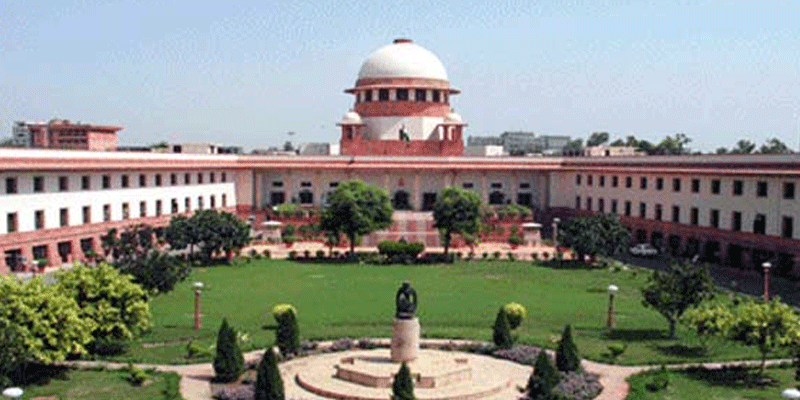
In a recent judicial intervention, the Supreme Court of India issued an interim order pausing the Uttar Pradesh government’s directive requiring shopkeepers along the route of the Kanwar Yatra to display nameplates indicating the religious affiliation of the shop owners. This directive had been met with considerable controversy and criticism, raising concerns about religious discrimination and the potential for communal tensions.
Background of the Directive
The Kanwar Yatra is an annual pilgrimage undertaken by millions of devotees of Lord Shiva, who carry holy water from the Ganges River to their local Shiva temples. This event sees a significant influx of pilgrims, particularly in Uttar Pradesh, necessitating substantial logistical and security arrangements by the state government. The directive for shopkeepers to display religious identification was ostensibly introduced to streamline security and ensure communal harmony during the yatra.
Table of Contents
Controversy and Criticism
The directive quickly drew widespread condemnation from various quarters. Critics argued that mandating religious identification was not only discriminatory but also potentially inflammatory, exacerbating communal divisions. Civil rights activists, opposition parties, and various community leaders voiced their concerns, stating that the directive violated the secular principles enshrined in the Indian Constitution.
The directive was seen by many as a step towards institutionalizing religious profiling, thereby creating an environment of mistrust and fear among different communities. There were fears that such measures could lead to targeted violence or boycotts against specific religious groups, undermining social cohesion.
Legal Challenge
In response to the outcry, a Public Interest Litigation (PIL) was filed in the Supreme Court challenging the constitutionality of the Uttar Pradesh government’s directive. The petitioners argued that the directive was arbitrary, discriminatory, and violative of fundamental rights guaranteed under Articles 14, 19, and 21 of the Constitution, which pertain to equality.
The petitioners contended that the directive not only infringed upon the right to privacy of the shopkeepers but also amounted to an unlawful imposition of identity based on religion. They highlighted that such measures were unprecedented and set a dangerous precedent for state-sanctioned religious profiling.
Supreme Court’s Interim Order
Recognizing the potential for communal discord and the violation of fundamental rights, the Supreme Court issued an interim order to pause the implementation of the directive. The bench, led by Chief Justice of India, emphasized the importance of maintaining communal harmony and protecting the secular fabric of the nation. The court pointed out that the directive, in its current form, appeared to infringe upon the rights of individuals and could lead to unnecessary tensions.
The court’s order underscored the principle that administrative measures should not discriminate on the basis of religion and should be designed to promote inclusivity and harmony. It directed the Uttar Pradesh government to provide a detailed explanation of the necessity and rationale behind the directive and to explore alternative measures to ensure the safety and security of pilgrims without infringing on individual rights.
Reaction to the Supreme Court’s Decision
The Supreme Court’s intervention was met with relief by many who viewed the directive as a step towards religious segregation. Human rights organizations and civil society groups welcomed the order, reiterating their stance that the government must prioritize secularism and equality.
Opposition parties, which had been vocal in their criticism of the directive, lauded the Supreme Court’s decision as a victory for constitutional values and individual rights. They called upon the government to adopt more inclusive and non-discriminatory policies that respect the diverse fabric of Indian society.
Conversely, some supporters of the directive argued that it was a necessary measure to ensure the safety of pilgrims and maintain public order during the Kanwar Yatra. They contended that the directive was being misinterpreted and that its primary aim was to facilitate better management of the large crowds and prevent any untoward incidents.
Broader Implications
The Supreme Court’s interim order has significant implications for the broader discourse on religious freedom and secularism in India. It highlights the judiciary’s role in upholding constitutional values and protecting individual rights against potential overreach by the executive. The case underscores the delicate balance that must be maintained between security measures and the preservation of fundamental freedoms.
The court’s decision also serves as a reminder to governments at all levels to exercise caution when implementing policies that affect religious or communal dynamics. It calls for a thoughtful approach that prioritizes inclusivity and mutual respect, reinforcing the idea that administrative convenience should not come at the expense of constitutional principles.
Conclusion
The Supreme Court’s interim order pausing the Uttar Pradesh government’s nameplate directive during the Kanwar Yatra marks a significant judicial intervention aimed at protecting the secular ethos of the country. As the legal proceedings continue, the case will likely serve as a critical reference point for future debates on religious freedom, secularism, and the extent of state intervention in personal and communal identities. The order reinforces the judiciary’s commitment to upholding the constitutional rights of all citizens, ensuring that India’s diverse and pluralistic society is respected and protected.







